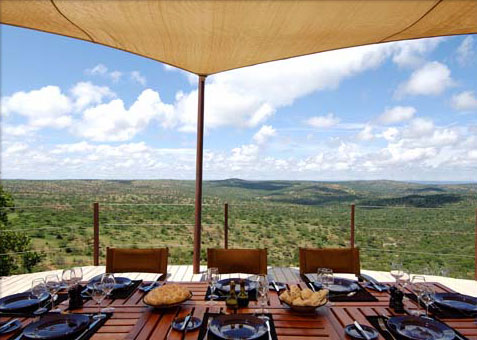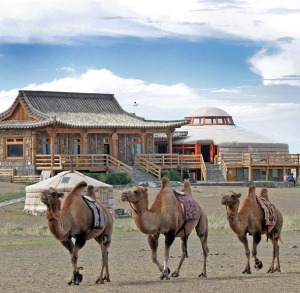By Dian Hasan | July 21, 2010



The “Klotok” traditional wooden boat that meanders through the calm river with nothing but the lush rainforest jungle accompanied by the soundtrack of nature.
Arguably, Indonesia’s tourism industry might not be as well developed as some of her Southeast Asian neighbors, and that is of course not due to a lack of attractions. After all, Indonesia is home to Bali, her crown jewel tourism magnet. Indonesia’s entire modern tourism industry seemingly is centered on Bali, leaving other areas relatively undeveloped.
In the past, such condition may have been considered to be behind the times, but in the advent of raised awareness regarding sustainability and eco-consciousness, this is Indonesia’s blessing. For this vast archipelago, with the world’s second richest rainforest biodiversity after the Amazon, is most probably the world’s last eden! An endangered eden that is fast disappearing. And it’s up to us all to strive for a sustainable development that champions economic progress without compromising natural resources for future generations.
It is outside Bali, in the unexplored corners of Sumatra, Borneo and Eastern Indonesia, where Indonesia’s greatest gift to mankind is being conserved – her fauna and flora. The Komodo “dragon” monitor lizard, Orangutan, Java Rhino, Sumatran Elephant, Rhino and Tiger are just some of the more famous residents – whose habitat can only be found in Indonesia. The fate and survival of these endangered species depend on the global community coming together with the right initiatives.
Rimba Lodge’s main bungalow where Julia Roberts stayed while filming the 1993 PBS Documentary: “In the Wild: Orangutans with Julia Roberts”






Rimba Lodge, the perfect gathering place, where man and primate interact.
Ecotourism is one way, in which these efforts are executed, raising awareness of the animals’ plight, and helping generate much-needed revenue to help with conservation efforts, while practicing responsible tourism.
Eco Lodges Indonesia (ELI) is a pioneering, ecotourism provider operating in an emerging economy, with a focus on biodiversity conservation and enhancement of local community livelihoods. Eco Lodges Indonesia runs four ecolodges in Indonesia’s major National Parks, and partakes in the protection of these endangered animals. The other objective is to improve the livelihoods of local communities where the properties are located.
Eco Lodges Indonesia is one of the first to pursue international sustainable tourism certification in Indonesia, and is committed to achieving the UN Millennium Development Goals through their ecotourism investments and operations.
Rimba Orang Utan Eco Lodge, Tanjung Puting National Park, Central Kalimantan
Rimba Orangutan Eco Lodge is located adjacent to Tanjung Puting National Park and on the edge of the Sekonyer river in Kalimantan (Borneo).
The Lodge is only accessible by boat from the port of Kumai. Arriving at the Lodge jetty in the middle of the forest is an unforgettable experience, likened to expeditions deep in Africa or Brazilian Amazon. The jetty connects to all rooms, the reception area, office and restaurant by a series of covered boardwalks.
 The Lodge provides a base from which you can explore the surrounding rainforest and Tanjung Puting National Park. Take a walk from your room along the bird walk, hear the plaintive cry of Gibbons, early birdsong and the resident Macaque monkey troop from your comfortable room, set right on the edge of the gently flowing Sekonyer river.
The Lodge provides a base from which you can explore the surrounding rainforest and Tanjung Puting National Park. Take a walk from your room along the bird walk, hear the plaintive cry of Gibbons, early birdsong and the resident Macaque monkey troop from your comfortable room, set right on the edge of the gently flowing Sekonyer river.
From the Lodge you travel by klotok (wooden boats) upstream, surrounded by rainforest, to a number of feeding stations in the Tanjung Puting National Park, the most famous of which is Camp Leakey, established in 1971 by Dr. Biruté Mary Galdikas (founder of Orangutan Foundation International), a student of Professor Louis Leakey, together with Jane Goodall and Diane Fossey. Dr Gladikas is considered as the world’s leading authority on the study of Orangutans.
As you walk through the rainforest you often see orangutans and at Camp Leakey you sometimes see gibbons as well as many butterflies and birds. At the feeding stations you’ll be able to see these amazing primates up close. There are also opportunities to take a night safari to see tarsiers, glowing mushrooms, fireflies and perhaps owls. Other wildlife to be seen in the area are 9 other primate species, crocodiles, butterflies and rare birds such as Storms stork.
The lodge has 35 rooms: 15 Emerald, 6 Sapphire and 14 Ruby. All rooms have mosquito drapes and repellent, fans, double or twin beds, western shower and toilets. Emerald rooms have air conditioning and hot water.




Leeping Proboscis monkeys greet visitors enroute to Rimba Lodge. Locals call them “Monyet Belanda (Dutchman Monkey” for its long nose. Continue reading














































 Al Gore may have made the term “planet in peril” permanently enter our psyche. From driving hybrid cars to recycling and going “green” and organic, it has morphed into our lifestyle. Influencing how we travel as well. These days, we can go on vacation while concurrently reducing our carbon footprint.
Al Gore may have made the term “planet in peril” permanently enter our psyche. From driving hybrid cars to recycling and going “green” and organic, it has morphed into our lifestyle. Influencing how we travel as well. These days, we can go on vacation while concurrently reducing our carbon footprint.